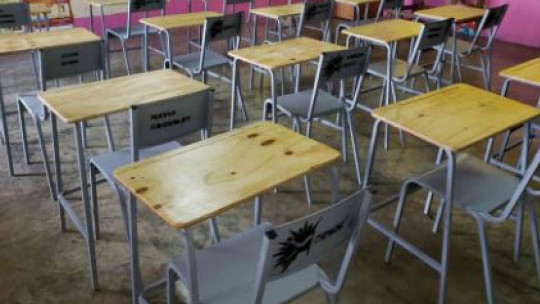.png)
00:00
00:00
00:00
By Nakinskie Robinson
The fog surrounding the state of education in the Caribbean has thickened, after the World Bank delivered a major blow by revealing that the sector is facing a crisis.
Adding to an already grim picture of poor mathematics passes in the 2024 sitting of the Caribbean Secondary Education Certificate (CSEC) exams, the Bank says the pass rates have revealed critical gaps in learning outcomes, with Jamaica and Trinidad and Tobago singled out as lower level performers on the global stage.
Using the 2024 CSEC results to drive home its point, the World Bank notes that only 4.9 per cent of almost 200,000 Caribbean students passed five or more subjects, including Mathematics and English.
It says the mathematics pass rate of 36 per cent, a 7 per cent dip when compared with 2023, highlights a long-standing issue in foundational learning, which continues to undermine student success and regional development.
This crisis, it says, has deep systemic roots and far-reaching consequences for economic growth, social cohesion, and crime prevention.
The Bank says a lack of strong foundational skills in literacy, numeracy, and critical thinking is at the heart of the problem.
In light of the World Bank's report, Education Minister Dr. Dana Morris Dixon says the government has been working overtime to tackle the glaring challenges affecting the education system.
"We have to fix a lot of the issues that we see in our education system. And that's precisely why the Prime Minister had established the Patterson Commission, or the Education Transformation Commission, to look at how we can improve our education system. And I think we're a little bit ahead of many of our sister countries in terms of having done that very deep work, and we also have started to implement the recommendations," she said.
Meanwhile, the Bank says the region is further challenged by limited participation in globally recognised assessments, like the Programme for International Student Assessment (PISA), which measure and benchmark student performance.
Trinidad and Tobago and Jamaica are again placed in an unfortunate position in a global report or index with both being in the spotlight for countries who have scored significantly lower than global averages in PISA.
Minister Morris Dixon said Jamaica has made the bold but necessary step to assess students against their global counterparts.
"Jamaica is a part of PISA now. And you would have seen [former Education Minister Fayval] Williams made that very bold decision to have our children accessed and to see where we ranked with the rest of the world. And that's a key first step. And so World Bank was recommending it to Caribbean countries, but Jamaica is already ahead in that because, as I said, we are not looking at education through rose-tinted glasses," she suggested.
Stakeholders raised concerns about the contribution of poor educational outcomes to an increase in negative societal issues such as crime, following the results in 2024.
Meanwhile, Registrar and Chief Executive Officer of the Caribbean Examinations Council (CXC), Dr. Wayne Wesley, said the conclusion presented by the Bank comes as no surprise.
He said the findings reiterate what was already uncovered by the regional exam body prior to the release of results last year.
While efforts to improve the region's education systems are underway, the World Bank said further reform is needed in key areas such as foundational learning, data collection systems and digital education.
It added that promising success stories from the region offer hope with Guyana's smart classrooms and World Bank-supported projects in Jamaica and Haiti.
But the Bank said to achieve lasting change, Caribbean countries must adopt a holistic and resilient approach to education reform, including preparing education systems to withstand external shocks, such as natural disasters and pandemics, which disproportionately affect vulnerable students.
comments powered by Disqus







 All feeds
All feeds







